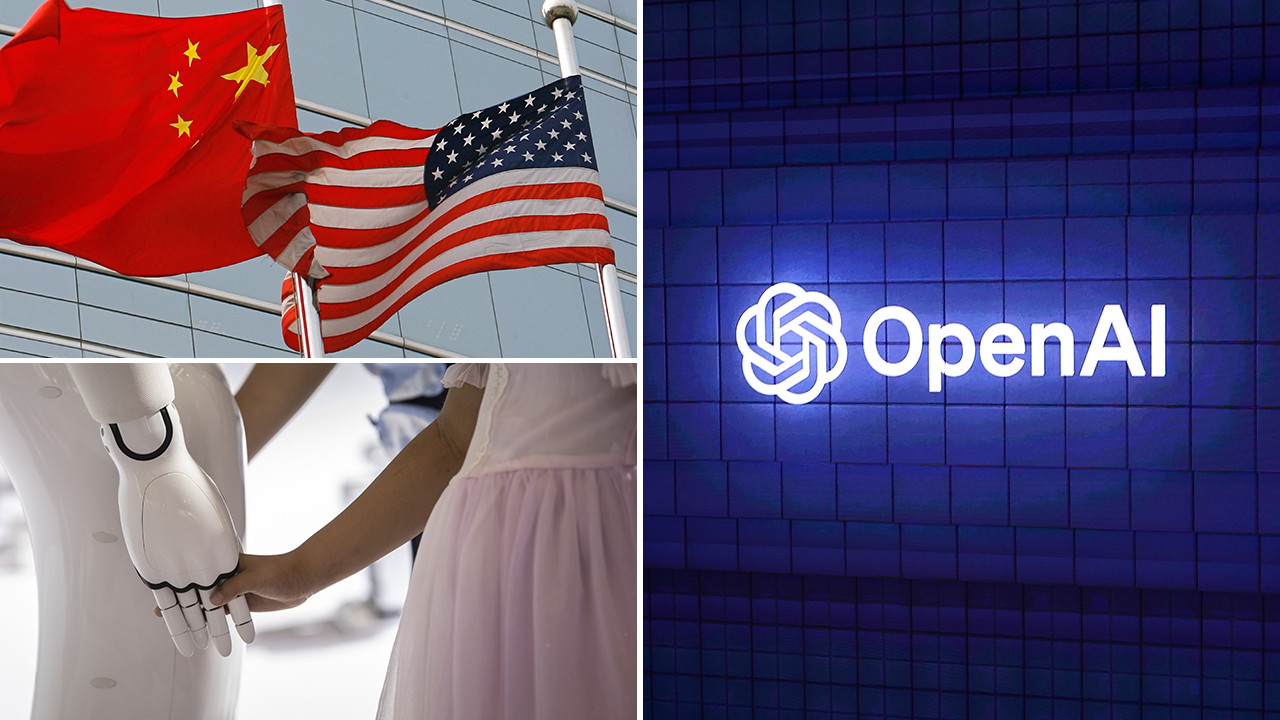In a world where artificial intelligence (AI) is rapidly evolving, the race for technological supremacy has intensified, particularly between the United States and China. OpenAI, a leading entity in the AI landscape, has recently unveiled a series of strategic policy proposals that aim not only to position the U.S. as a frontrunner in AI development but also to address pressing concerns regarding the impact of AI on children. This initiative could redefine the future of technology and child safety, marking a pivotal moment in the ongoing AI race.
Understanding the AI Race
The global AI race is characterized by intense competition between nations to develop robust AI technologies that can enhance economic growth, national security, and societal well-being. The U.S. and China are the primary contenders in this arena, each vying for leadership in AI innovation. China’s government has implemented aggressive strategies to dominate the AI sector, investing heavily in research, infrastructure, and talent acquisition. This has raised concerns in the U.S. about maintaining its competitive edge in technology.
OpenAI’s proposals come at a crucial time as the stakes are high. The implications of AI technology extend beyond economics; they touch on ethical considerations, societal impacts, and, significantly, the welfare of younger generations. As AI systems become more integrated into daily life, ensuring their safe and responsible development is paramount.
OpenAI’s Strategic Policy Proposals
To navigate the complexities of the AI race, OpenAI has put forth several ambitious proposals designed to promote U.S. leadership in AI while safeguarding youth. These proposals can be categorized into three main areas: investment in research, collaboration with educational institutions, and the establishment of regulatory frameworks.
1. Investment in Research and Development
OpenAI emphasizes the need for substantial investment in AI research and development to foster innovation. This involves:
- Government Funding: Advocating for increased federal funding for AI research, particularly in areas that focus on ethical AI development.
- Public-Private Partnerships: Encouraging collaboration between government agencies and private companies to share resources and knowledge.
- Supporting Startups: Providing grants and incentives to startups that prioritize ethical AI practices and child safety.
By prioritizing these investments, OpenAI aims to create a fertile ground for groundbreaking AI research that aligns with societal values and safety standards.
2. Collaboration with Educational Institutions
Another key aspect of OpenAI’s proposals is fostering collaboration with educational institutions. This is essential for preparing the next generation of AI leaders who are not only technically skilled but also ethically informed. Strategies include:
- Curriculum Development: Partnering with universities to develop curricula that incorporate ethical considerations in AI education.
- Internship Programs: Creating internship opportunities for students in AI companies to gain practical experience.
- Workshops and Seminars: Organizing events that focus on the implications of AI on society and children.
This collaborative effort will ensure that future AI professionals understand the significance of their work, particularly regarding its impact on youth.
3. Establishing Regulatory Frameworks
As AI technologies evolve, so too must the regulatory frameworks that govern them. OpenAI advocates for:
- Comprehensive Guidelines: Developing clear guidelines for AI development that prioritize transparency and accountability.
- Child Safety Regulations: Implementing specific regulations to protect children from potential harms associated with AI, such as data privacy concerns and exposure to inappropriate content.
- International Collaboration: Promoting international agreements on ethical AI standards to prevent a race to the bottom in safety practices.
These regulations are crucial for ensuring that AI technologies are developed responsibly and that their deployment considers the well-being of children and society at large.
The Impact on Youth and Child Safety
One of the most pressing concerns surrounding AI technology is its impact on youth. Children today are growing up in an increasingly digital world, where AI influences their interactions, learning, and entertainment. OpenAI’s proposals aim to address these concerns head-on. Here’s how:
1. Protecting Privacy
With the rise of AI-driven platforms, children’s data privacy is at risk. OpenAI’s emphasis on regulatory frameworks includes specific measures to protect the personal information of minors. This involves:
- Strict Data Regulations: Enforcing laws that limit data collection from children and require parental consent.
- Transparency in Algorithms: Mandating that companies disclose how AI systems use data, especially concerning children.
2. Promoting Healthy Interactions with Technology
OpenAI recognizes the importance of ensuring that AI technologies foster positive interactions. This can be achieved through:
- Content Moderation: Implementing robust content moderation systems to shield children from harmful or inappropriate material.
- Educational Tools: Developing AI-driven educational tools that encourage learning and critical thinking without overwhelming young minds.
3. Supporting Mental Health
AI can also play a role in supporting the mental health of children. OpenAI advocates for:
- AI for Good: Encouraging the development of AI applications that promote mental health awareness and provide resources for young users.
- Research on AI Effects: Funding research to understand the psychological impacts of AI on children and adolescents.
By addressing these areas, OpenAI aims to ensure that the benefits of AI do not come at the cost of young people’s well-being.
Conclusion
As the AI race continues to unfold, OpenAI’s bold proposals represent a significant step toward establishing the U.S. as a leader in ethical AI development. By focusing on research investment, collaboration with educational institutions, and robust regulatory frameworks, OpenAI seeks to not only outpace global competitors like China but also safeguard the interests of our youth. The future of technology hinges on how we navigate these challenges, and with responsible leadership, we can harness the power of AI to create a safer, more prosperous world for generations to come.
See more Future Tech Daily

